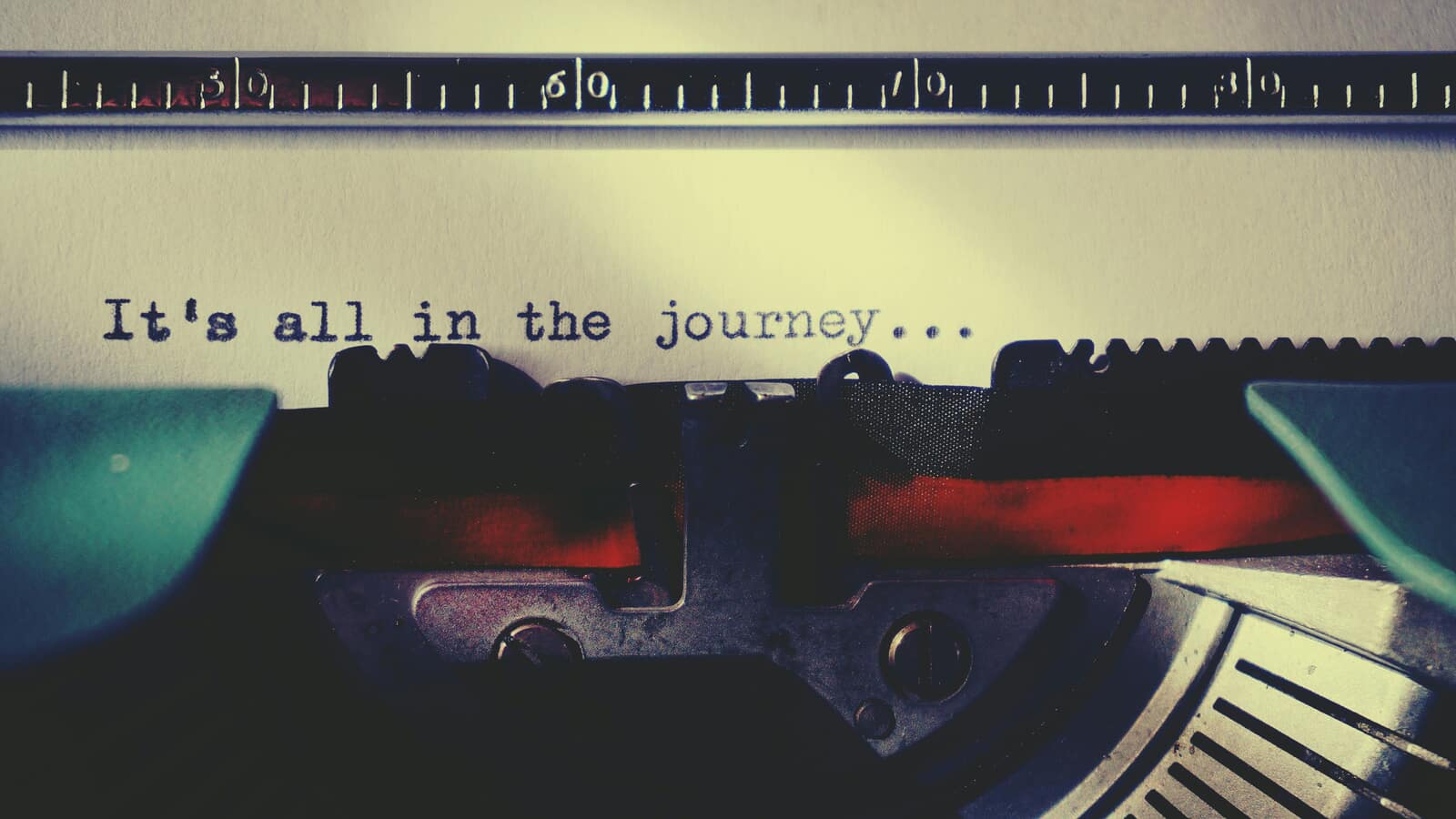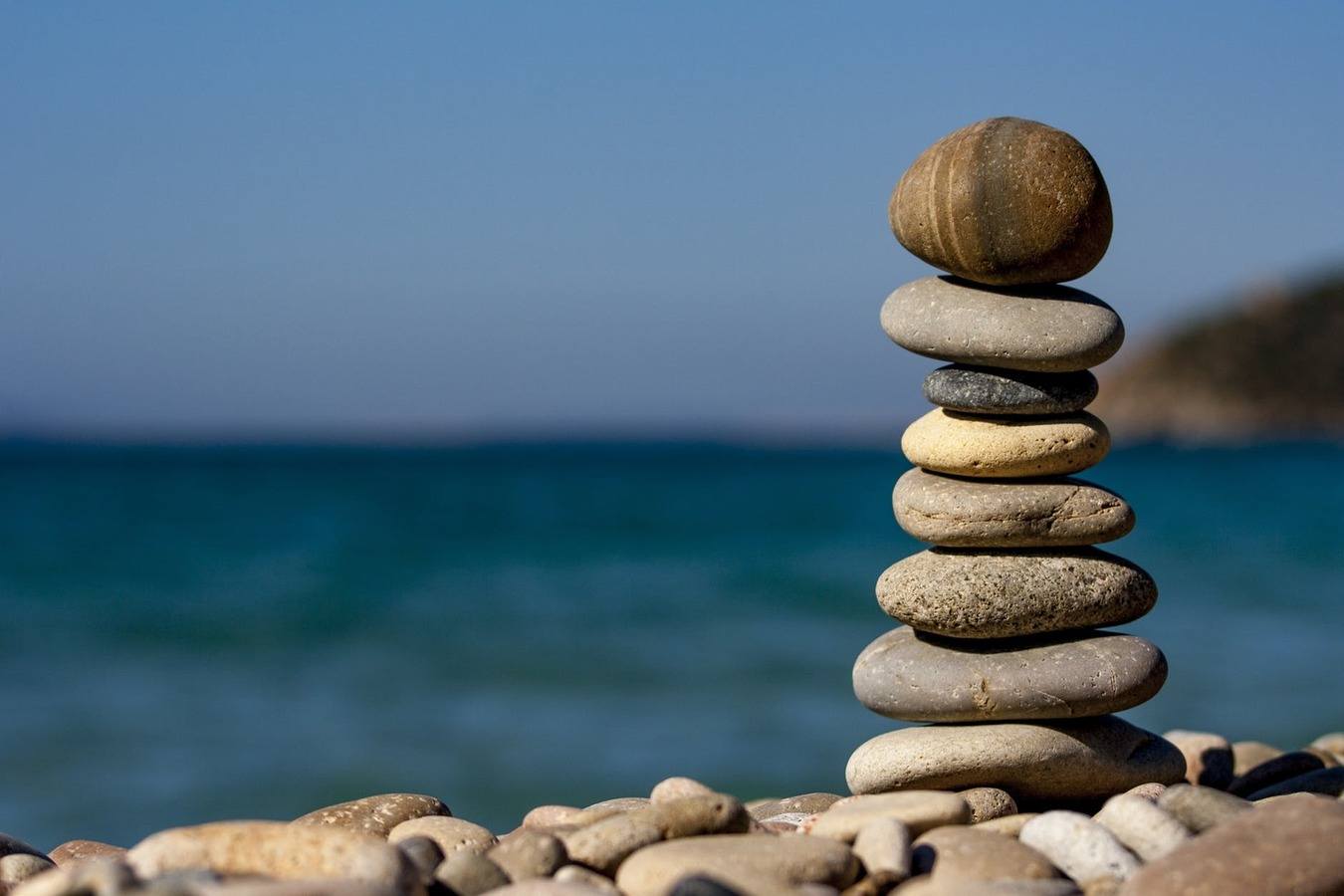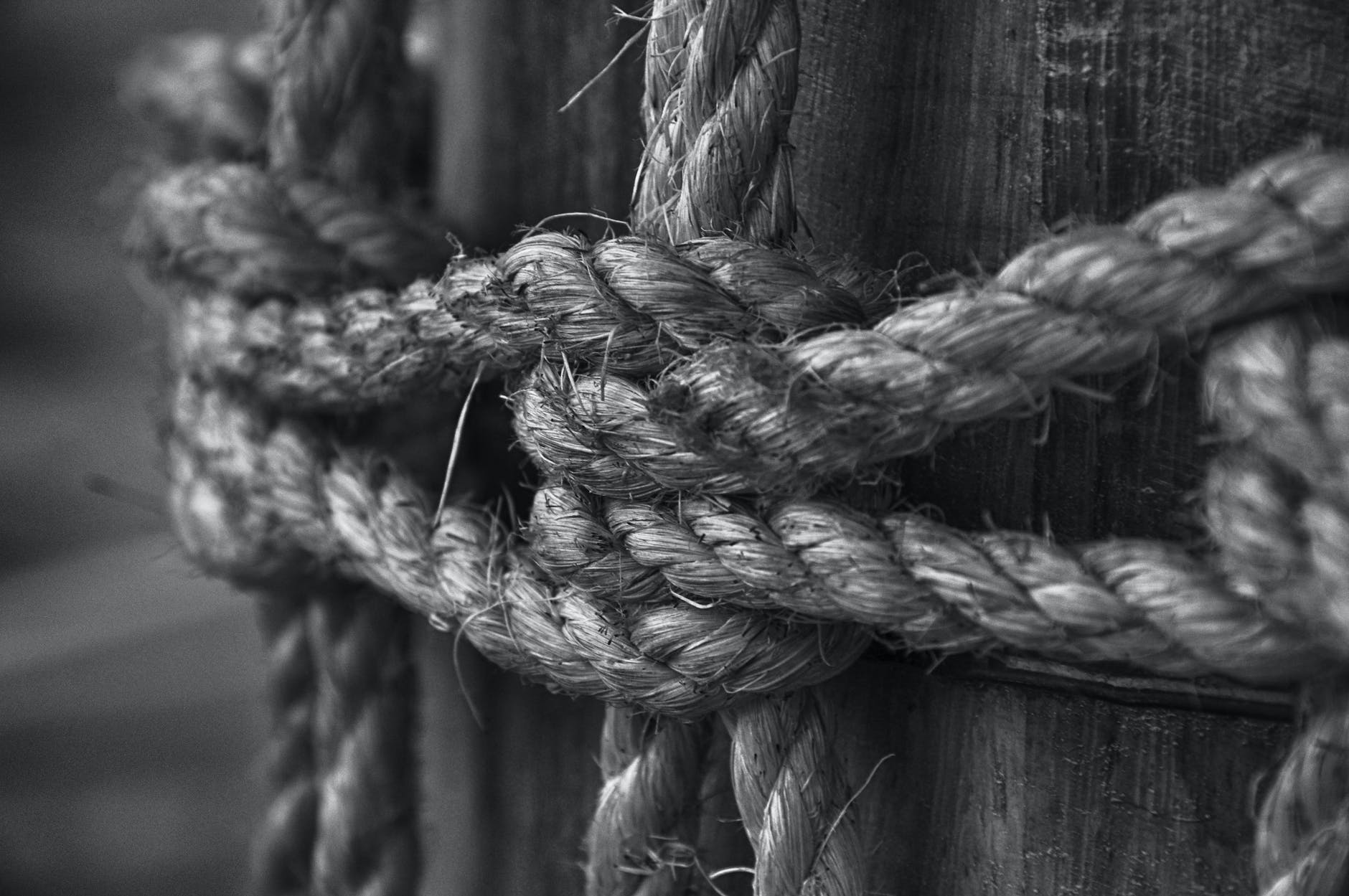—Can we go to the crystals shop?
—I’m sorry, I can’t do that with you right now.
I say this to my youngest and, glancing up, I watch as their small face literally crumples in front of my eyes. Their skin goes grey and their eyes lose their sparkle. Slumping, their shoulders cave in and their body shrinks. Moments later, two things I had planned with friends I’ve not seen in months are cancelled and then, hours later, another, this time a date that I had been looking forward to: sorry, they say, I met someone else. I feel as though I’m drowning in wet sand, my eyes, mouth and heart gritty. This is disappointment.
Hope. Joy. Anticipation. Delight. Disappointment is the absolute opposite of all these lighter feelings. It can be so intense to hold; even a small incident can hit us hard. And yet it’s a feeling we’re often told to dismiss, especially when we’re adults. The message being that that’s just life, get on with it. And yet you’re not alone or silly for finding it hard to bear. It can be excruciating. In fact, it’s one of the most difficult of our feelings. Here we’re going to talk more about where we feel disappointment, how to hold and move through it, as well as what gifts it might bring.
Where does disappointment show up in our lives?
Disappointment that our feelings have changed
It’s hard to have feelings change, even when they’re our own. We can feel disappointed that we no longer feel the same, that something fundamental has shifted. This might be in relation to people, places, hobbies or work. We can still honour commitments and connections but it’s important, also, to honour our own needs. Because feelings change, circumstances change, everything changes. Your ability to feel and hold complex emotions needs to be tested and expanded like a muscle.
Disappointment that another’s feelings have changed
It’s so hard when someone else’s feelings about us, or about an activity or plan in which we were emotionally invested, has changed. It’s so easy to take it personally. And yet, if we reflect on times when we have been the one whose feelings have shifted, we can ask ourselves: did we make that choice? Or was it just how we felt? Did we not also wish we felt otherwise? Feel sad and regretful? We can’t choose how we feel, but we can choose how we act, and this is where values such as honesty, authenticity, respect and kindness, as well as conscious choices and change-making, come into play.
Disappointment that the thing we had hoped for hasn’t happened, whether that’s a football win, a trip out, a date, a new job
Life is rarely as we expect. The day-to-day disappointments of losses, rejection and things not going to plan can be hard to bear. This is where feeling the feelings and acknowledging that it can feel really hard is important. Otherwise, the bitterness and sadness will weigh us down, making future joy less possible. We can ask: when has it ‘not worked out’ before – and what happened next? How do you feel about the ‘not working out part’ now you are here? What sadness lingers, what joy did you receive, in place of what you were hoping for? Try to hold life lightly and trust that it knows best. As Rilke said: life is in the right, always.
Disappointment in our actions
Oops, I did it again. Britney lyrics? Or another time when our fragile yet admirable, and usually very good, intentions to act differently are smashed on the hard tiles of our habits and fears? It’s common for there to be a period of time in between knowing you should act differently and actually consistently being able to do so. The disappointment we feel while in this stage can be hard to hold, and we can be super-critical of ourselves, which is unlikely to help us change in future. Again, the disappointment is a signal of the need for the change. Compassion for ourselves, as well as others, is key when we feel like this.
Disappointment of unmet needs
You’ve done the work of figuring out where you’re at and what you need. And yet those needs remain unmet. That’s tough. Really tough. It’s hard to hold, and even more so when we might have to do that for longer than we’d like. In this time, we can treat ourselves with gentleness. We can notice when we’re drawn to what looks like a quick fix for how we’re feeling or something that meets only part of our needs, and we can reflect upon whether that is really going to serve us best in the long run. It may not feel like it right now, but knowing our needs, even the unmet ones, is a vital map that shows the path towards our joy.
Disappointment: the costs of avoiding it
So, we’ve talked about some of the causes of disappointment. But what happens when we don’t feel it – when we dismiss it because we’ve been told that we’re big and grown-up now and life is just like that? What people tend to say is: there’s always next time – the next date, more fish in the sea, a better opportunity – why are you still dwelling on that? Wishing for that?
Dismissal is a way of avoiding. A way of pushing something difficult away. It’s a short-term fix and rarely serves us in the long run.
Bitterness can result from not feeling through, or from allowing fear of causing or feeling disappointment to dictate our choices. So many of the supposedly helpful quotes around disappointment are about giving up, about not caring any more. It’s as if there is a point where we just stop being able to care because we feel overwhelmed by disappointment.
We can use this feeling to guide us. We can develop the courage to stay open-hearted, open to life and to the people around us. We can treat ourselves with compassion when life grabs our expectations and hopes and crunches and crumples them up.
That is what disappointment feels like to me: as though my heart has been scrunched up and thrown aside. We can admonish ourselves for expecting or hoping, or we can understand that expecting and hoping are part of being human. And, in understanding that, we can try to hold these feelings lightly. We can’t get rid of them unless we wish to make ourselves less human. We can allow hope, as well as compassion, to smooth out the paper of our heart, seeing that it bears the crinkles and wrinkles of the pain but that it is still beautiful nonetheless.
We can allow life to harden us or to soften us.
It’s easy to get angry with others when we feel disappointed. We can shout and rage; we can reject them. This is what the disappointment tells us to do: shut down, close off. Don’t give any more. But what if we sat with it instead? Held it still and close, instead of lashing out? Why add regret to the feeling?
The fear of disappointment is often a reason for not stepping into our own lives, for not reaching out, taking a risk. It keeps us still and maybe safe for now, but it also keeps our lives small. Most people hold back from living and loving fully because they fear disappointment. The more connection and courage we have, the more we have to face disappointment. So, conversely, one might see that the more disappointment you’re feeling, the more out there in the world you are, the braver you are.
This doesn’t make it any less hard to hold.
There’s another side to this too. Disappointment also lives in the ways we try not to cause this feeling in others.
Avoiding causing others to feel disappointment
Because we know how very hard disappointment is to feel, we twist ourselves in knots to try and avoid causing it in others. Whether it’s cancelling plans, saying no, speaking of an unmet need, being honest about how we feel or how that’s changed, rather than risk causing disappointment we lie, obfuscate and avoid.
Trying to avoid disappointing others is a common feeling and a big driver behind many of our choices, conscious and unconscious. The fear of disappointing others is the well-worn path of non-self-consent. The fear of disappointing others can hold us back from stepping into our own power, purpose and pleasure.
Trying to avoid causing disappointment in others leads to the same feelings of bitterness that suppressing our own disappointment does. We end up resenting and loathing those whom we are trying to please but at too high a cost to ourselves.
If we go to great lengths to avoid causing disappointment, we’re also taking away an opportunity for them to grow and to know themselves and their needs more fully. Life is hard, disappointment does suck, but all life is ever asking of us is honesty. We need to be true and honest with ourselves and with others. Our truth can change. Theirs can too. But let us be brave enough to speak of it to ourselves and to each other.
How to hold disappointment
Accepting how we feel when we feel sad, so heavy with disappointment – leaden – is the only way we can move through it. Letting go of the sadness means feeling it first. Then we are light on the other side. Lighter and freer. If we only shove those feelings deep down, over time they build up and curdle to a sour resentment. It IS a shame. Sigh it out – a big pfffffffffttt… 🙂
We can cuddle and warm ourselves, soothe and comfort ourselves. That might be with warm blankets, water and hot drinks as well as trusted friends and the blank, welcoming pages of a notebook. We might ask for a hug, go to bed early or watch our favourite movies. We might book a treat, eat an éclair or go for a walk. We might read articles like this and notice what comes up as we journal, doodle and reflect.
Disappointment is valid. You’re allowed to wish it had gone otherwise. Just try not to stay there too long. Life is calling you.
What disappointment can open up
What can disappointment teach us? We can learn to be with the feelings and we can also start to see what those feelings open up and teach us. Here are some of the beautiful things that I think disappointment can gift us:
It can remind us of our shared humanity
By being a universal emotion and one which we recognise as difficult to hold, disappointment can remind us of how connected and alike we are.
It can show us the connection between our child and adult selves
Seeing how hard disappointment hits children can be a gentle reminder that the challenges of growing up are never over. By virtue of just being alive, we must always be experiencing disappointment in small and big ways, and by gently reminding ourselves that it’s been a feature of our lives we can step into compassion for ourselves whatever stage of life we’re at.
It can show us what’s important and what we need
How we feel about circumstances and how those feelings shift over time can teach us what’s important to us. It can give us valuable signals about where our priorities should be and what we need.
It can show us how to value ourselves and care for ourselves
How we care for ourselves when we feel disappointment can be a good measure of the quality of our self-care and compassion practice.
It can teach us resilience and hope
That we can thrive even under difficult circumstances/that we can feel happy again after loss
It can teach us gratitude
To notice what we have, and to notice the mind’s tendency to always be thinking about when and next as opposed to here and now.
It can teach us perspective
Consider the times when something worked out better than you hoped. And when something didn’t happen as you hoped and that ended up being for the best. Life is a patchwork of unexpected experiences. We need to try to trust life. And ourselves. We will be okay, more than okay, whatever happens (or doesn’t).
It can teach us flexibility and acceptance
It’s not about never hoping, planning, daring or dreaming, but about doing these things with space around them – with an awareness that life knows best even if it all too often feels otherwise.
It can teach us curiosity
Rather than thinking we know best, what would it feel like to let life take over the driving seat? One of my favourite sayings is: trust in God but tie your camel. It’s not about not doing anything but, instead, about doing your best and letting go of the rest.
It can teach us the sweet taste of sorrow
Rumi wrote: ‘I saw grief drinking a cup of sorrow and called out, “It tastes sweet, does it not?” “You’ve caught me,” grief answered, “and you’ve ruined my business. How can I sell sorrow, when you know it’s a blessing?”’
Life is always asking us to hold more and more complex ways of being and feeling in the world. Sometimes it asks, and sometimes it tells. It’s up to you whether you listen.
What can disappointment teach us? That life has something else in store for us. That life knows best.
What would happen if we never felt disappointed? Well, while there’s a little part of me that does still think that sounds great, that’s also the same part of me that thinks I know best, that I can and should be in control of every part of my life. But, deep down, I know this is not how things should be.
Having reflected upon it, disappointment has taught me what I need and what I value, and it has shown me what I have. I believe it’s a difficult yet powerful feeling that can be a guide to where we need to be going as opposed to where we think we should be. It can make us more true to ourselves, more courageous, and it can more closely connect with us all of our fellow humans who very much feel it too.




















